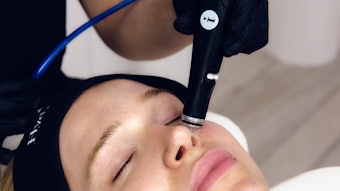
Plaintiff Lindsey Finster, representing herself and others potentially affected, filed a class action complaint in the U.S. Northern District of New York Court on Nov. 11, 2022, against Sephora USA, which alleges that the "clean at Sephora" program is misleading to consumers and takes advantage of the vague regulations enforced in the cosmetics industry.
Related: L'Oréal Faces Suit Over Alleged Cancer-causing Hair Straighteners
The suit argues that with this label, consumers assume the products were formulated without parabens, sulfates SLS and SLES, phthalates, mineral oils, formaldehyde and others, according to the court document. Finster had purchased products labeled with "clean at Sephora" imagery that ostensibly meant the products were free of harmful ingredients—when in fact they are not, she alleges.
An example in violation of the presumed definitions of clean beauty is offered in the court documentation: "The Saie Mascara 101 contains numerous synthetic ingredients, several of which have been reported to cause possible harms."
Per the Sephora website, the product ingredient disclosure is as follows: Water (Aqua), Beeswax, Butyrospermum Parkii (Shea) Butter, Polyglyceryl-6 Distearate, Dimer Dilinoleyl Dimer Dilinoleate, Glycerin, Copernicia Cerifera (Carnauba) Wax, Polyglyceryl-10 Myristate, Cetyl Alcohol, Glyceryl Caprylate, Leuconostoc/Radish Root Ferment Filtrate, Zea Mays (Corn) Starch, Xanthan Gum, Arginine, Phenethyl Alcohol, Agropyron Repens Root Extract, Potassium Sorbate, Sodium Benzoate, Iron Oxides (CI 77499).
Finster calls out several ingredients in this disclosure, including polyglyceryl-6 distearate. She describes this as a compound of glycerol and stearic acid, and explains that "glycerol is manufactured through hydrogenolysis, a chemical reaction whereby a carbon-carbon or carbon-heteroatom single bond is cleaved and undergoes lysis by hydrogen." She continues, "Because the global cosmetic industry uses millions of metric tons of glycerol per year, the only viable source for glycerol is as a byproduct in biodiesel production."
In terms of stearic acid, she added that although it is "based on the natural source of palm oil, it is significantly altered through saponification, a chemical reaction where fats, oils and lipids are converted by heat in the presence of aqueous alkali such as sodium hydroxide."
Finster seeks a proper class action, according the suit, "awarding monetary, statutory and/or punitive damages and interest; awarding costs and expenses, including reasonable fees for Plaintiff’s attorneys and experts; and other and further relief as the court deems just and proper."










